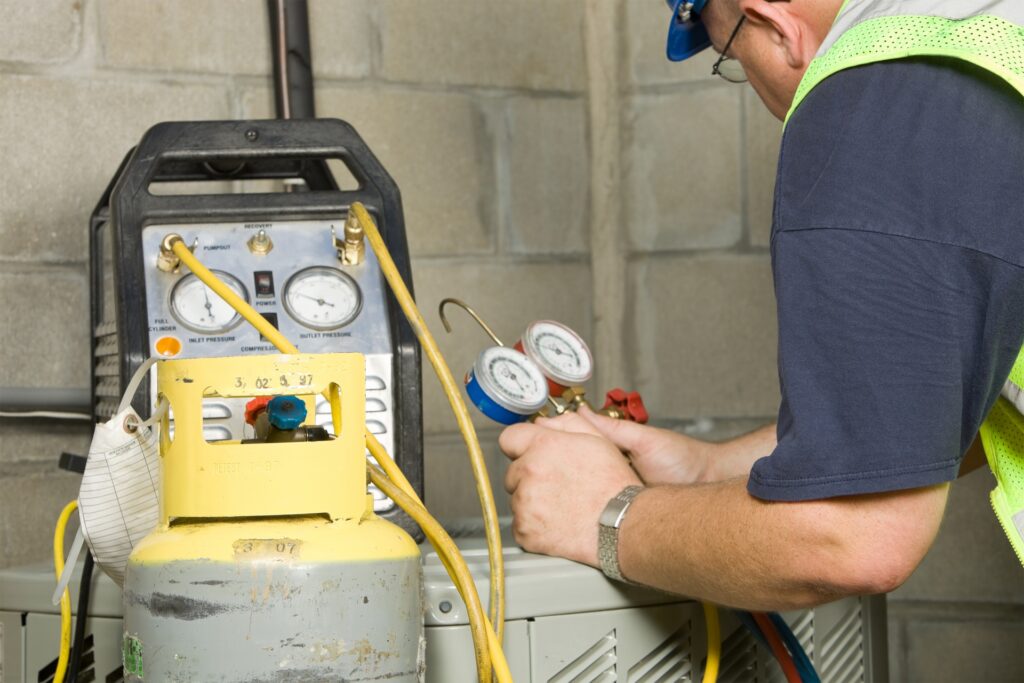Your air conditioner likely uses a substance called refrigerant to cool your home. In some cases it also uses refrigerant to heat your home, but it depends on what type of system you have. Many people use the terms Freon and refrigerant interchangeably, although Freon is a specific brand name of refrigerant.
No matter what you want to call it, having a Freon leak in your AC is a big problem. If you think that you have a Freon leak and went to schedule AC repair in Los Angeles, our team can help. In the meantime, keep reading to learn more about the signs of a Freon leak in your AC and what to do about it.
Problems Cooling
The number one sign of a refrigerant leak is your home not cooling off when you have the air conditioner on. You may not notice this problem as much during this time of the year when temperatures are milder, but you’ll definitely notice it in the heat of summer. If it doesn’t seem like your air conditioner can keep up with your cooling needs, a Freon leak may be to blame.
High Humidity
The Freon inside your air conditioner doesn’t just cool the air. It also helps to remove some humidity. After all, humidity can make the air feel warmer than it really is. That’s a benefit in the winter, but not in the summer. When you want to cool your home, high humidity is a problem. A refrigerant leak decreases your air conditioner’s ability to cool your home, but it also reduces the ability to remove humidity from the air.
Unit Running Longer
Typical cooling cycles are around 15 minutes long. Your air conditioner turns on, cools your home to the desired temperature, and then turns back off again until the temperature gets too warm. If your air conditioner is staying on much longer than 15 minutes, it may be struggling to cool your home due to a refrigerant leak. You also want to pay attention to your unit if it is turning on more frequently than normal, even if the cooling cycles are about the same length. This is called short cycling and can add a lot of wear and tear to your unit.
Energy Bills
If you notice your energy bills increasing, it may be that your air conditioner is struggling to cool your home. This could happen for a variety of reasons, but one of them is a refrigerant leak. Of course, we won’t know exactly what the problem is until we inspect your unit. It’s a good idea to get the problem checked out before your energy bills increase even more, whether a refrigerant leak is to blame or not.
Evaporator Coil Ice
One of the most obvious signs of a refrigerant leak is seeing ice on the evaporator coils of your outdoor unit. You can take a look at the coils to see if you notice any ice crystals. If you do, there’s a good chance that a refrigerant leak is to blame. You definitely want to schedule service for your air conditioner before the problem gets worse.
Unusual Sounds
Sometimes the refrigerant leak is so quiet that you can’t actually hear it. But other times, you may notice a bubbling over hissing sound. Your unit will make a bubbling sound if the refrigerant leak is in a portion of the line where the refrigerant is liquid. Your unit will make a hissing sound if the refrigerant leak is in a portion of the line where the refrigerant is gas.
JMS Air Conditioning and Heating has your back. Call us today to schedule an appointment for HVAC services in Glendale, CA!


